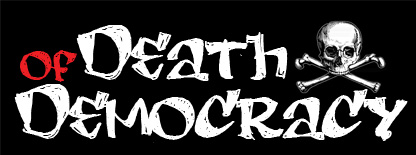Posted on: NZCPR
Until the passing of the Resource Management Amendment Act 2017 the business of territorial local authorities was conducted by the elected representatives of the citizens living in the particular area. That is no longer the case. Henceforth councils will be required to share their statutory powers with self-selected, unelected entities. This marks the end of democratic local government in New Zealand for the obvious reason that the elected members are no longer sovereign but must take account of the wishes of the self-selected group none of whom will be required to submit to the ballot box. Given that the activities of local authorities play an increasingly important role in our lives this has the potential for far reaching consequences. No longer will the contents of the district plans which control all important aspects of; land and water use, and any activities involving discharges to the atmosphere, be arrived at with the consent and input of the occupants of the district but will become subject to the wishes of unelected group.
However, given that there seems to be increasing disinterest in local body elections one may wonder whether this is necessarily such a bad thing. Why not leave it to the professional staff and an unelected pressure group to determine what activities are, and are not allowed to take place within a district. In other words is democracy such a necessary or good thing? To answer this question it is helpful to start with three aphorisms:
- “Power tends to corrupt, and absolute power corrupts absolutely. Great men are almost always bad men.” – Lord Acton 1887.
- “Democracy is a psychopathic expression of inferiority” – William Joyce, an American better known as Lord Haw Haw who broadcast defeatist propaganda from Berlin during to the war. He was hung as a traitor by the British at war’s end.
- “Many forms of Government have been tried, and will be tried in this world of sin and woe. No one pretends that democracy is perfect or all-wise. Indeed it has been said that democracy is the worst form of Government except for all those other forms that have been tried from time to time.…” – Winston Churchill 1947.
Churchill uttered this in the aftermath of the general election in which Clement Attlee’s Labour government swept to power. It was an astonishing affirmation of the place of democracy as a political institution. Having lately been instrumental in salvaging the free world from German hegemony, Churchill was nevertheless comprehensively rejected by the United Kingdom voters. One would have expected some bitterness, or questioning of a political structure which intended to and did demolish much of the existing social norms into which he was born, and which his party represented. Not so – he continued to believe in the common sense and life experiences of the electorate in deciding who should govern the country. What then are some of the other forms about which Churchill spoke? To mention a few:
[Read more…]







Leave a Reply
You must be logged in to post a comment.